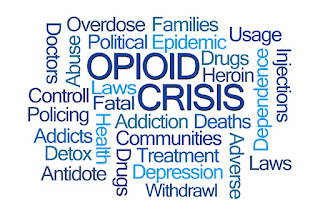Welcome to the Grid!
If you’ve been shown job search ads on your work computer after doing an employment hunt from your tablet at home, you probably know what ‘the Grid’ is. If you’ve received walk-in angiography messages on your mobile while passing a heart-specialty hospital, or foreign education loan messages on your daughter’s 18th birthday, you don’t need an introduction to the Grid. Wherever you go, you are constantly ‘in the Grid’ – tracked through your landline, mobile, traffic cameras, computer desktop, credit card, biometric devices at clubs and offices, store scanners, cookies, and what not.
Electronic tracking and lack of privacy are an accepted fact of today’s times. Modern data marketers can build a dossier on us through the thousands of databases we are not even aware we are in. They can trace us even when we change IDs, names, cities. Because they now analyse the signs and behaviours that remain the same – the writing style, the computer, the surfing pattern, the products bought, the social circle, and more. These online shrinks know secrets about us that our spouses, lovers, and doctors do not. They can accurately diagnose us with mental illnesses; can tell if we like abstract art or Byzantine, hard rock or Karnataki. And then blast us with targeted promotions.
Unfortunately the story does not end here. If data marketers merely created a world that reflected our tastes and facilitated transactions, it might even have been a pleasant scenario. What’s scary, however, is that like sculptors moulding clay, they are constantly fashioning our realities – reshaping our worldview bit by bit. Human beings are superbly malleable, and admirably adaptable. In the words of the Internet journalist Quinn Norton, “people make the best toys of all.”
By performing automated A/B tests of opinion analysis, marketers are learning how we think and react. Then by presenting us with content that nudges us to change just a little, repeatedly, over time they are tinkering with individual and public opinions. Opinions on organic foods, statins, racism, smoking, LGBTQ rights, retirement benefits, live-ins… anything can be changed to suit the needs of marketers. There is so much to grumble on this subject, I’ll reserve it for the next post.
In this one, I’ll pen some thoughts on why we get caught in the Grid, and if there is any salvage.
Why are we trapped?
Our captivity is the price we pay for 3 kinds of favours:
1. The price of gratis services
What do we pay for Google’s search engine functions that bring us results in milliseconds? Nothing. For its navigation services? Zilch. For websites that automatically remember our passwords? For bookstores that store our purchase history? For software that auto-sync our contacts with social media friends? For on-demand availability of cloud computing system resources? Not a dicky bird!
Information is cheaper than water or air. Isn’t that strange? When there is no price to a product, the user is the product. As a cyber expert has said, Apple sells to users, whereas Google sells users. Google’s annual revenue is about 160 billion USD. Number of users, about 2 billion. Simple math tells us that the company roughly makes 80 bucks per user. By giving free services, voluminous user data has been amassed over the years. And the tools? The search engine, auto-analysis of emails, correlation of friend circle through contact books, maps and location services, browsing pattern analysis through cookies, and several such applications generating data on its platforms.
The Grid is all around. For the corporations controlling us, the Net of legal agreements, global policies, tax evasion across boundaries, or sheer lobbying, make the system unbeatable.
2. The price of convenience
Do we know what happens after we give blanket permissions to apps to use photos, videos, or microphones on our mobiles? How safe is our personal information that we store for easy access across applications and devices?
As technology users, we often feel disillusioned that our cyber knowhow has increased over the years, while the truth is that we have become more vulnerable than ever before. This is because beginning in the late ’90s, software publishing became a high value business and large corporations took control of the industry. In a bid to make software more user-friendly, the inner workings of the computer started getting hidden behind layers. The mechanics of machines therefore became a privilege of those few who insisted on decoding every piece of software that they used. Most users, in contrast, were left to fathom the technicalities on their own.
As software complexity grew, license agreements also became longer than user manuals and there was practically no documentation for the customer. How many of us know if the license of the operating system installed by our company gives us copyrights to the content we create with it? Not many, because it’s easier to press the ‘Agree’ button than read the 400-page agreement. Our knowledge regarding the game applications we play on our phones is even worse. That explains why every corporation worth its salt is out to exploit us.
3. The price of vanity
The above two points might trick us into believing that surveillance systems and databases are the cause of our vanishing privacy. While work with artificial intelligence has furthered many advances in tracking technologies, they are not entirely the cause of our captivity in the Grid. We are. For putting our life up on Facebook. For keeping the location tags of our mobiles ‘on’ all the time. For not educating ourselves about browsers that track. And for not meeting our friends face to face.
In the '70s, Voyager spacecrafts 1 and 2 were amongst NASA’s most successful missions that travelled more than anyone or anything in history, right to the edge of the solar system and captured invaluable scientific data on 40 KB memory. Voyager 1 still communicates back with Earth using a 22.4-Watt transmitter – the equivalent of a refrigerator light bulb. That seems unimaginable in a time when we hold decades’ worth of computational power in our pockets. Today the iPhone 7 has a 256 GB capacity. But what do we do with it? Send selfies of coffee with our cats! If we have already created social media accounts of our underaged kids, we cannot blame marketers for trapping us in the Grid.
Is there a way out?
Leaving the Grid is possible only if we decide to take nirvana in the Himalayas. (Even then, the GPS might have a service to offer for locating the cave of sage Ved Vyas.) If that’s not an option, the best way to break out is by learning to use the Grid better. Staying abreast of all the latest technology is demanding work, and something that’s going to take time. But it pays to have our finger on the pulse, tread cautiously, use what we can cope with, and push back on the systems that watch and control us.
Meanwhile, there’s something easier (or probably not for the SM addicts). Keep your secret citadels to yourselves. Your latest travels, children’s birthday celebrations, move to a new home, restaurants visited, herbal remedies consumed – everything can be shared with your friends offline. Use the cyber network for your occupation, hobby or social cause, but beware of laying bare your lives.
I’ve never been an SM hog, but here’s my bit while posting this write-up: untagging my personal photos from the net. You too can begin with one small step at a time.
***
#TheAquilaTrials #novel #medicalthriller #pharmafiction #indianauthor #books #medicalfaction #latestnovel #newrelease2020 #thegrid




Comments
Post a Comment